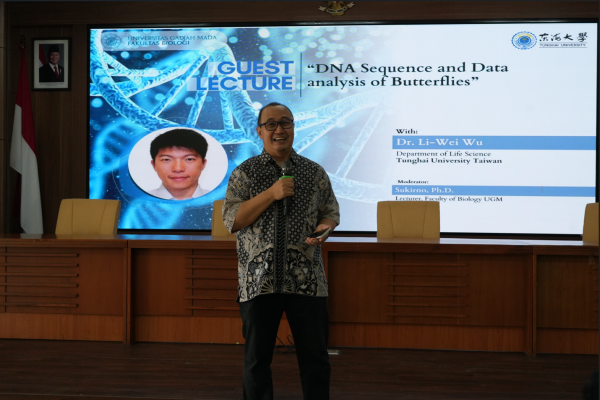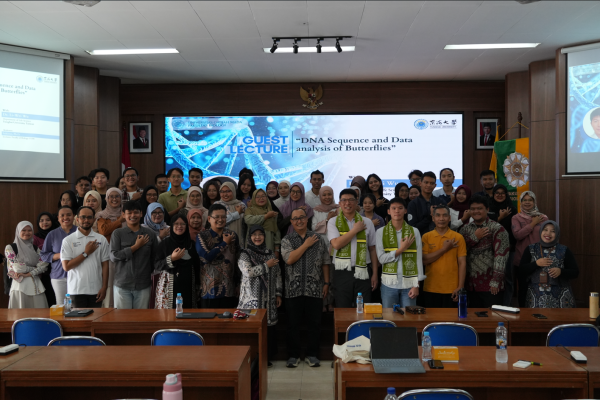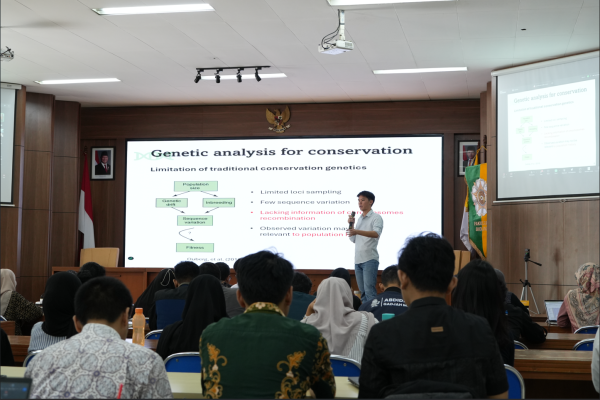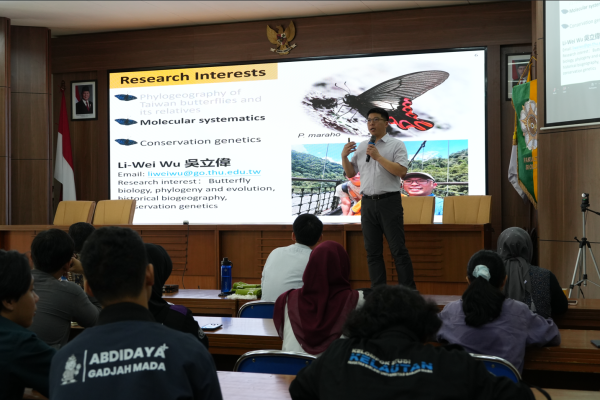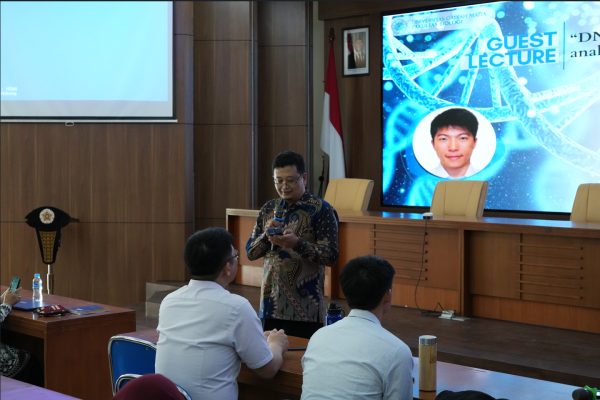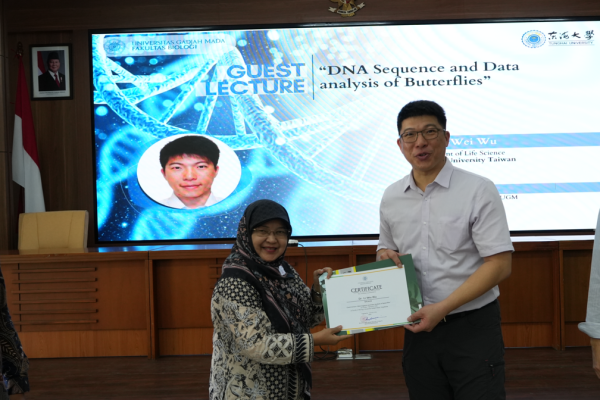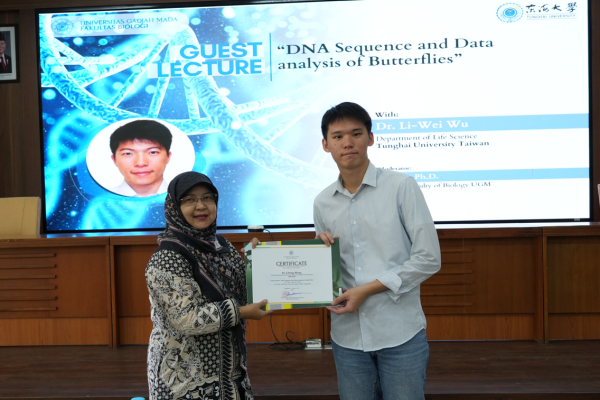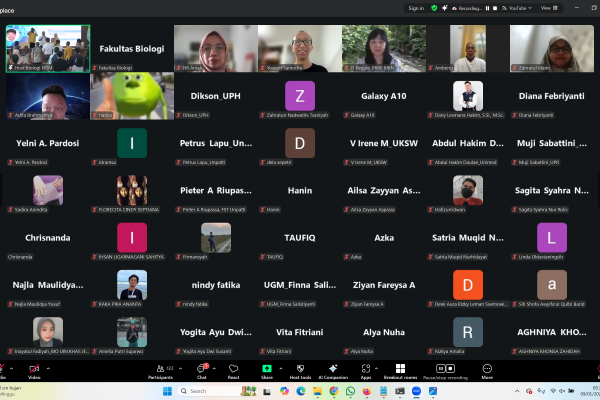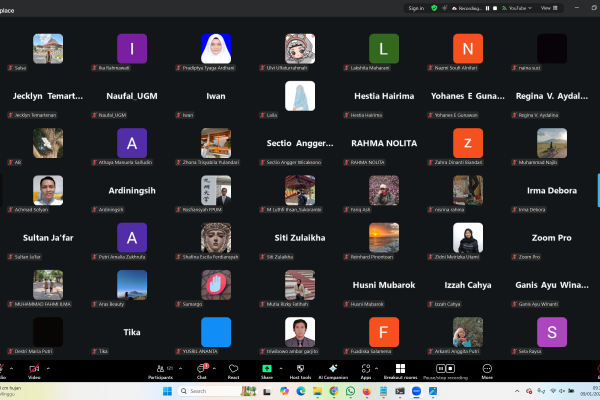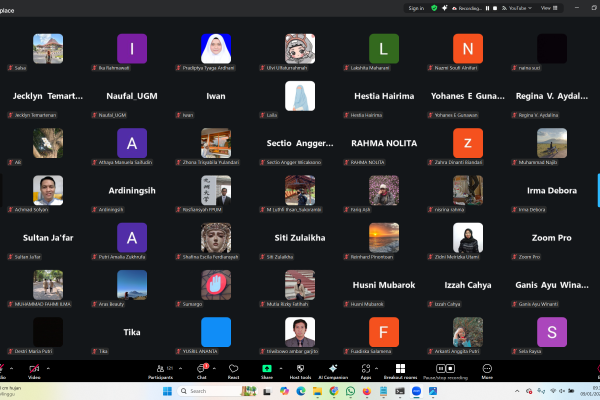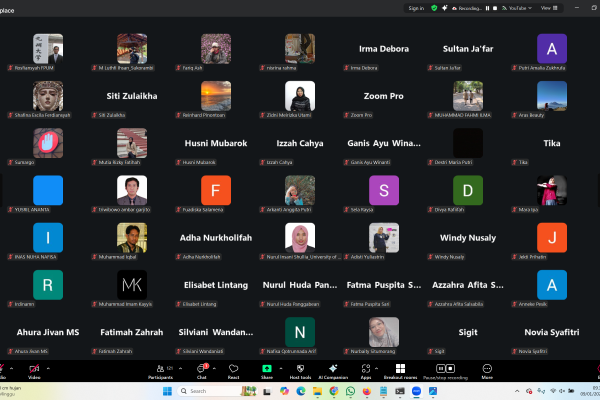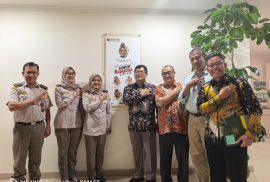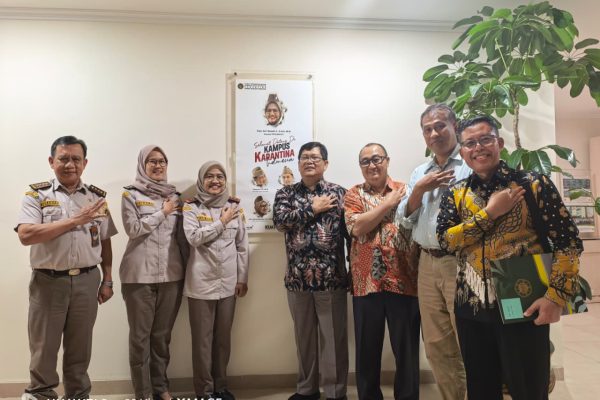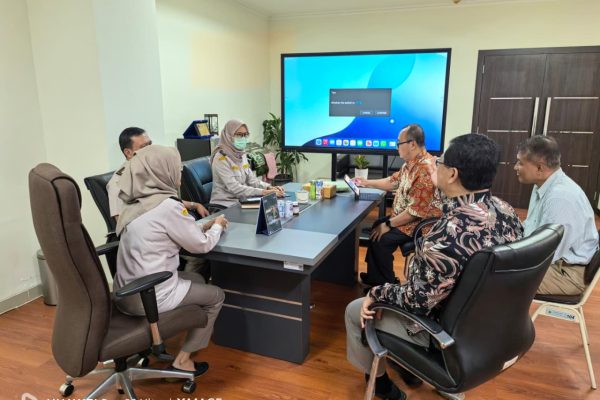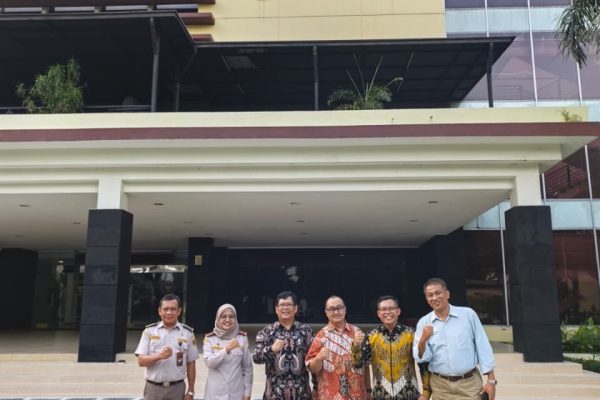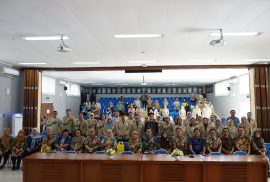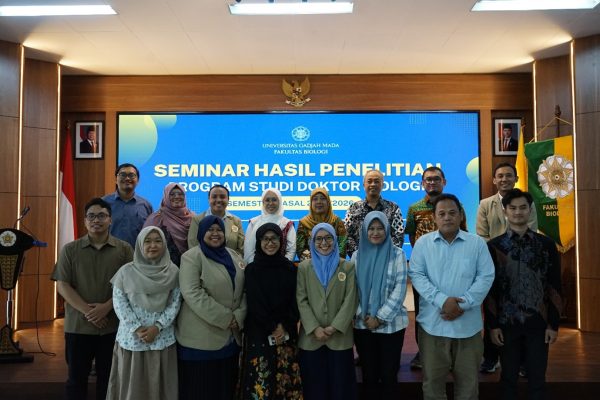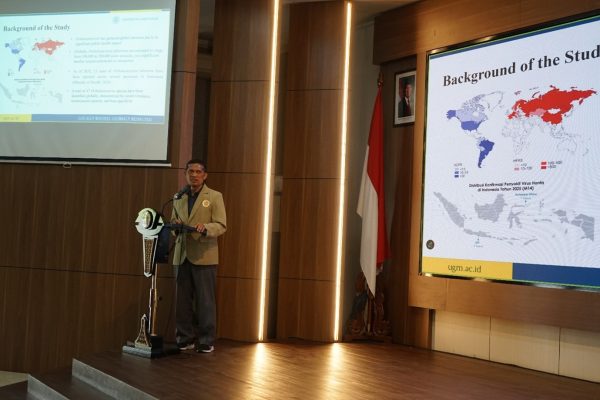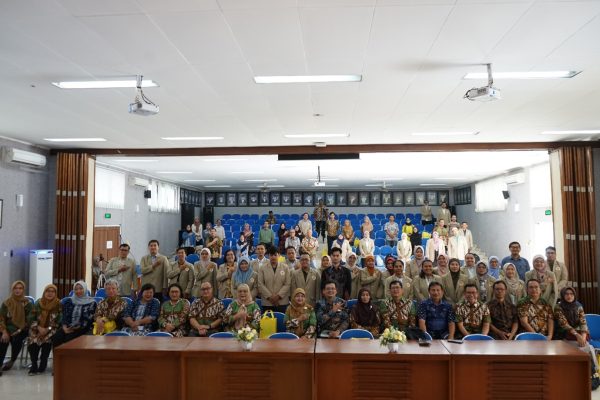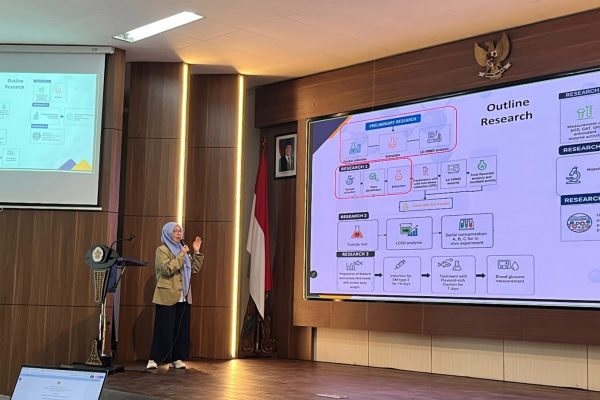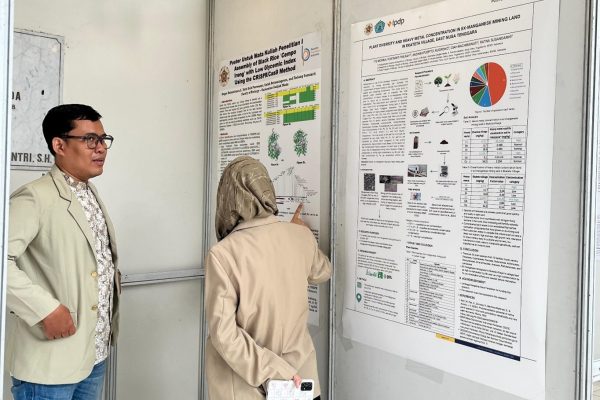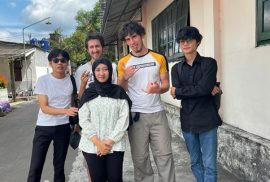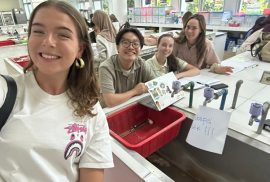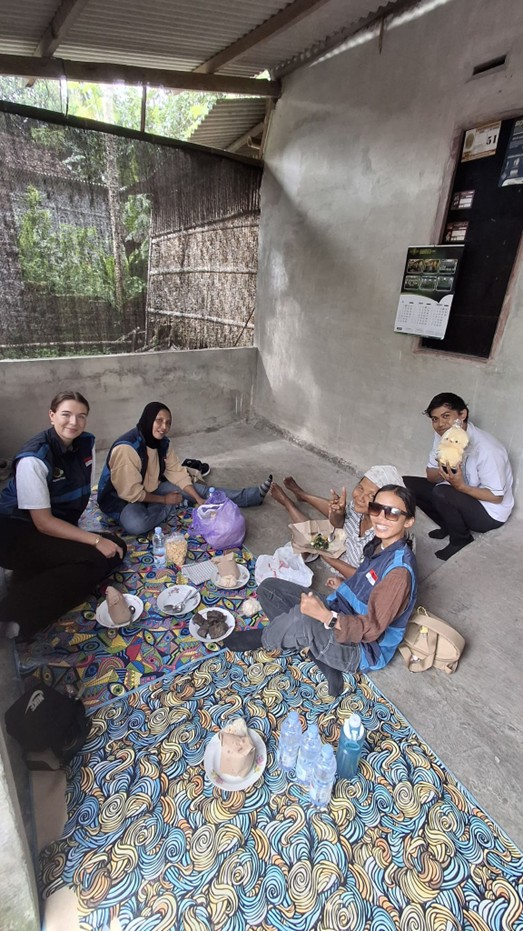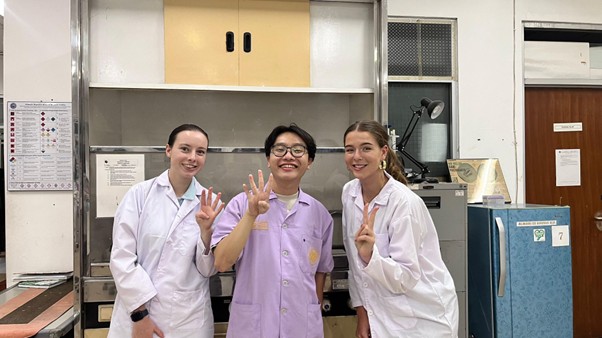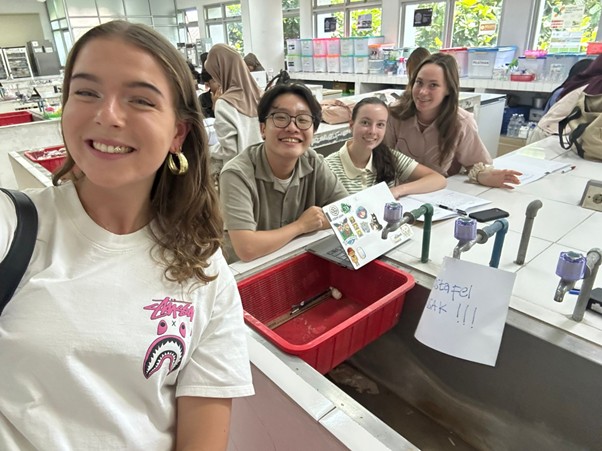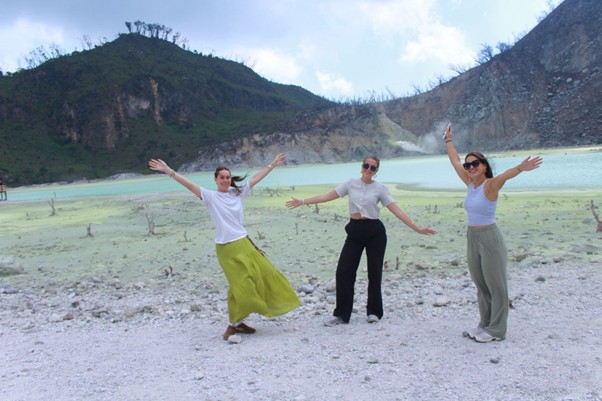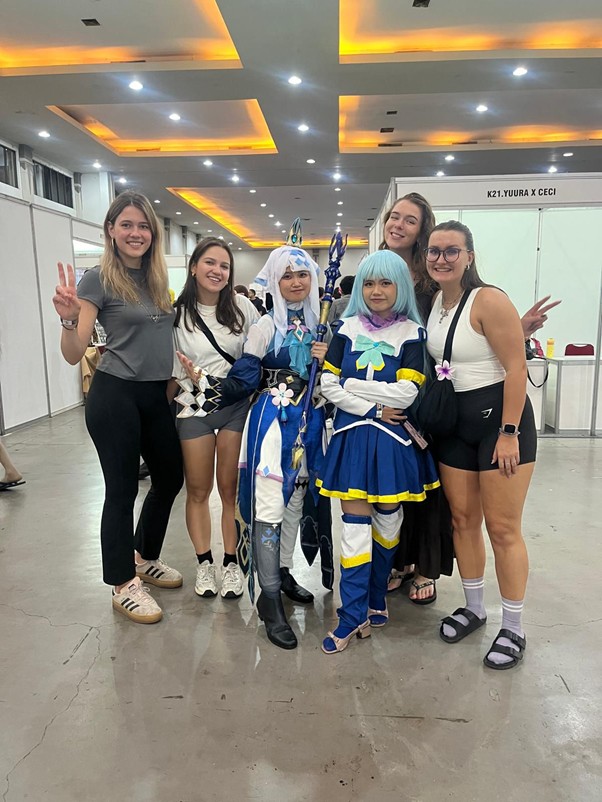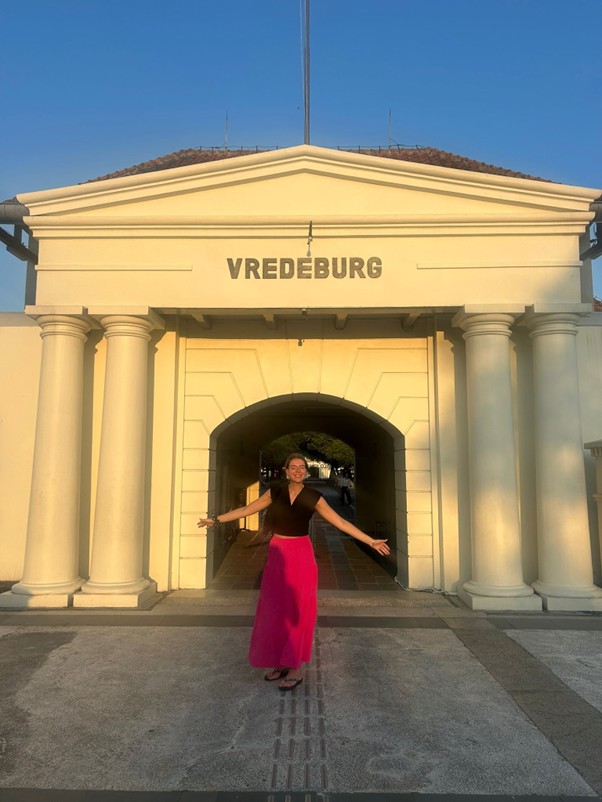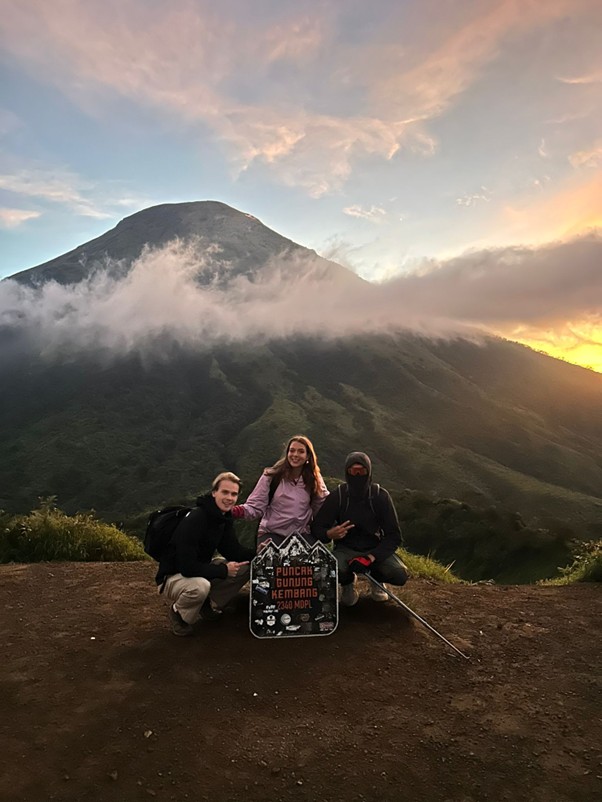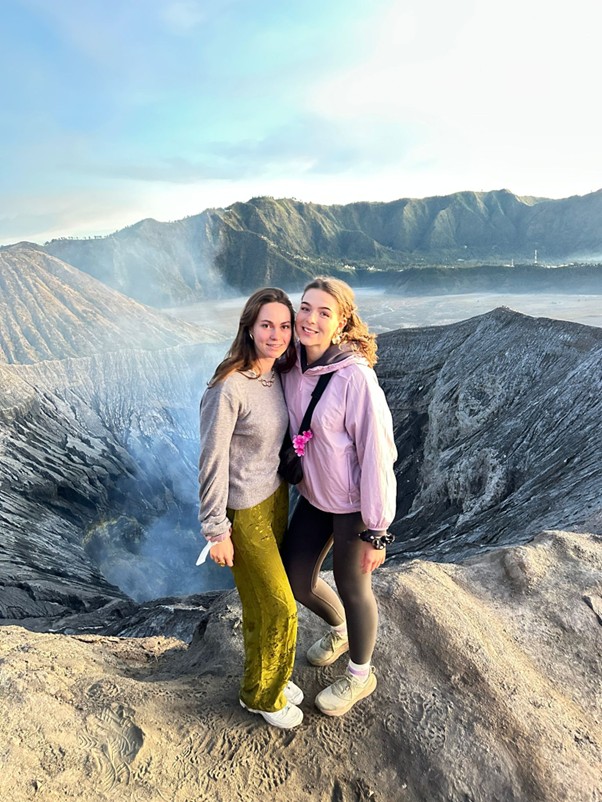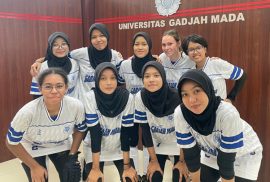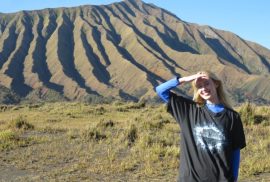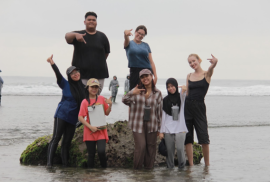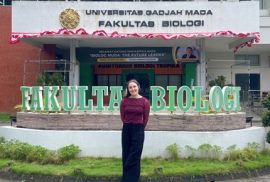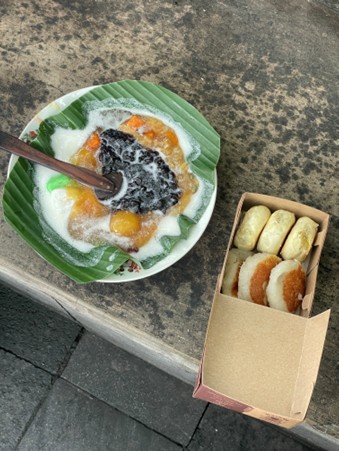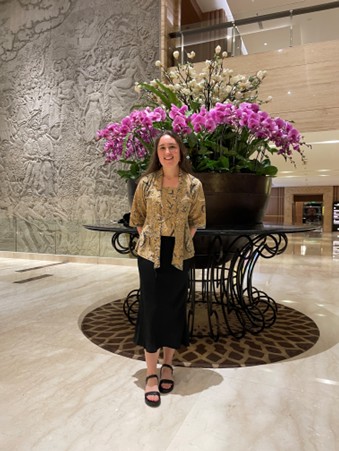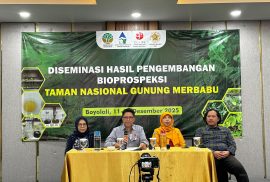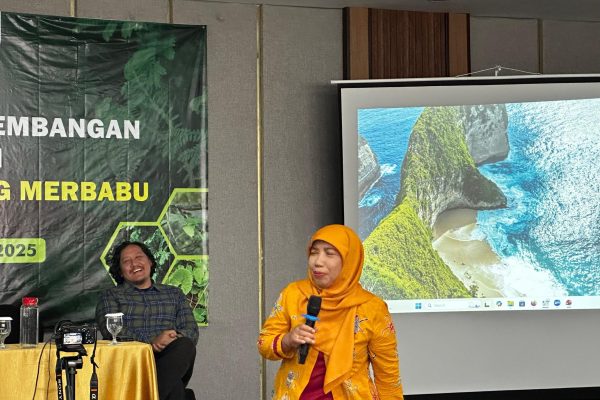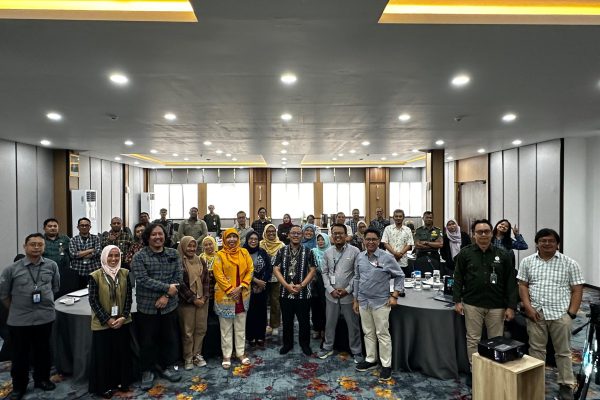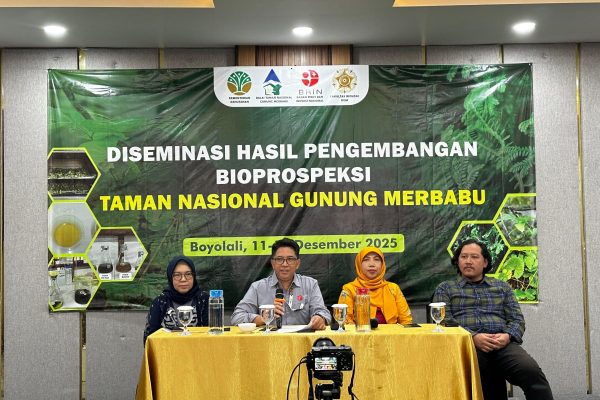SDG 15 : Advance Life On Land
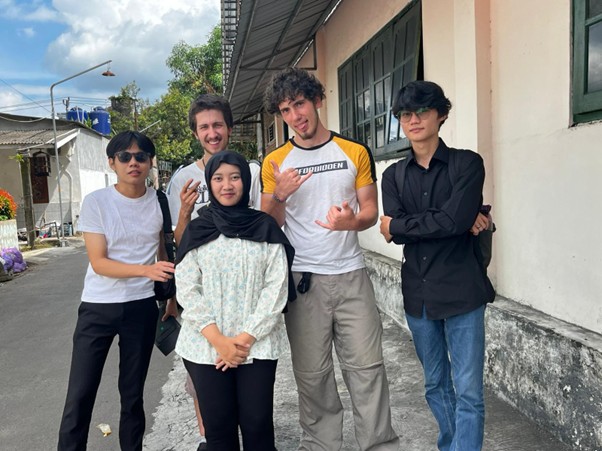
For Alex, an Environmental Science student from the University of Melbourne, the decision to join the exchange program at UGM was a leap of faith. Drawn by the beautiful campus photos and the proximity to Australia, Alex traded the massive lecture halls of Melbourne for the intimate, “laid-back” classrooms of the Faculty of Biology at UGM.
A More Personal Way of Learning
Alex noticed a significant shift in the academic atmosphere upon arriving at UGM. Unlike the large classes at his home university, UGM offered smaller groups and much more interaction with lecturers. “I found the academic environment great,” Alex shares, noting that courses like Environmental Science, Toxicology, and Plant Anatomy were perfect for expanding his knowledge in his core field.
The teaching style, which he described as more self-managed, proved beneficial. It allowed him to balance his studies with his desire to explore the city and build deeper connections with fellow students.
Beyond Bali: Discovering the Heart of Jogja
While many Australians are familiar with Bali, Alex discovered a different side of Indonesia in Yogyakarta. His first impression was the “relaxed vibe” of the city and the surprising friendliness of the staff and students. One cultural highlight that left a lasting mark wasn’t a grand monument, but a local snack: Chicken Teriyaki Cireng Isi at the Sunmor market. “The crispy, chewy texture was so good that I’d always try to find cireng on every menu after that!”
However, the most unique aspect of Jogja for Alex was the people. Coming from a city where people can be “largely unfriendly in public,” he was moved by the spontaneous smiles, nods of acknowledgment, and conversations that started out of nowhere.
Overcoming Anxiety and Finding Perspective
One of Alex’s most “real” memories happened outside the classroom during a trip to Merapi. When a friend’s bike broke down in Kaliurang, the day turned into a surreal adventure involving an impromptu coffee shop visit and a Grab driver towing the bike all the way back to UGM.
Reflecting on his journey, Alex admits he was initially anxious about moving to an unknown country. His advice to future students is to push through that fear:
“Whatever image of Indonesia you have is almost certainly wrong—there is so much diversity and complexity. Go into it ready to have your preconceptions challenged. I can’t imagine my life if I had backed out.”
Alex summarizes his experience with three powerful words: Learning, Understanding, and Real. For him, the exchange was a reminder that despite our different backgrounds, at a fundamental level, we are all very similar.
For Esther de Groot, a Health & Life Sciences student from Vrije Universiteit Amsterdam, exchange was an opportunity to step far outside her comfort zone. Seeking a complete contrast to her life in the Netherlands, she chose the Faculty of Biology at UGM for its high reputation and the chance to immerse herself in Indonesia’s unique culture and nature.
A Fresh Academic Atmosphere
Back in Amsterdam, Esther’s studies focused primarily on human biology. At UGM, she challenged herself by diving into marine, plant, and animal biology. While different from her usual track, she found the experience rewarding, especially within the faculty’s “cosy” and welcoming environment.
“I really liked the atmosphere at the faculty. It isn’t too big and it felt like everyone knows each other,” she noted. She particularly enjoyed Environmental Pollution & Toxicology due to the engaging discussions, as well as Genetics, where the intense Thursday afternoon practicals became a highlight. “I did many practical things I had never done before, and it was so much fun with the other students.”
Embracing the “Bule” Cheer and Local Kindness
Esther’s journey was filled with unexpected moments, but one stands out as “only in Yogyakarta.” After accidentally wandering into a Comic-Con event, she and a friend found themselves playing a ‘LARP’ game. When they won, thousands of people cheered them on, chanting “Bule! Bule!”. This welcoming spirit, she says, is something that would never happen in the Netherlands.
Beyond the city, Esther’s favorite memory was a sleepless weekend tour of East Java. Witnessing the blue fire of Mount Ijen, the craters of Bromo, and the Tumpak Sewu waterfall with a newly formed group of friends remains one of the most special moments of her life.
Advice for the Next Exchange Students
Initially overwhelmed by the “chaotic” traffic and the different pace of life, Esther grew to appreciate the positive mindset of the people she met. Her biggest piece of advice for future students is to befriend local students early on.
“The most funny, interesting, and unexpected memories were mostly made with the Indonesian students. It is such a nice way to learn about the culture and there is always so much to talk about.”
Esther summarizes her time at UGM as Educational, Fun, and Cosy—a journey where she felt truly welcome from day one.
For Hilde Aris, a Clinical Sciences student from Vrije Universiteit Amsterdam, Indonesia was more than just an exchange destination—it was a journey of curiosity. Drawn by the country’s diverse culture and nature, she chose UGM and Yogyakarta, a city renowned for its vibrant student life.
A Hands-on Academic Shift
Back in the Netherlands, Hilde’s studies were deeply rooted in human biology. At the UGM Faculty of Biology, her perspective shifted toward nature and biodiversity. She found the “field-based learning” approach particularly refreshing, involving lessons outside the classroom and practical sessions on real-world issues.
Her favorite course, Environmental Pollution and Toxicology, allowed her to compare environmental challenges between the Netherlands and Indonesia. Beyond the curriculum, she appreciated the small, personal class sizes: “It encouraged active participation. I really liked this and enjoyed the classes more because of it.”
Connection Beyond the Classroom
Hilde’s experience was defined by the warmth of the people she met. One of her most cherished memories happened early on when she went to play badminton. She was invited to play by a local couple, Ana and Vino, and they ended up playing together almost every week followed by dinner. “They felt like parental figures to me during my time in Yogyakarta,” Hilde shares.
Another “only in Indonesia” moment that left a lasting impression was the Lustrum Bingo at the faculty, which turned into a massive karaoke session with both students and teachers singing “Aku Cinta Jogja.” Whether it was playing for the UGM hockey team at Pancasila Stadium or joining a neighborhood celebration for Independence Day, Hilde felt an inclusive atmosphere everywhere she went.
Advice for Future Students: “DO DO DO IT”
Hilde’s advice for those considering UGM is simple: put Indonesia at the top of your list. While exchange friends are great, she emphasizes the importance of connecting with locals.
“Really invest time in meeting local people: Indonesian classmates or even people you meet on the street. Everyone is incredibly friendly and wants to share their stories.”
Hilde describes her six months at UGM as “Cinta, Beautiful, and Special.” It wasn’t just an academic semester; it was, as she calls it, the best six months of her life.
For Zuzanna, a third-year Biomedical Sciences student from Vrije Universiteit Amsterdam, there was no better classroom than the Indonesian archipelago. Driven by a deep love for nature, she chose UGM not only for its prestige as Indonesia’s top university but also for its rich research environment and the country’s status as a global biodiversity hotspot.
Hands-On Learning in Nature’s Backyard
Zuzanna’s academic experience at the Faculty of Biology was defined by inspiration and direct interaction. She was particularly impressed by the professors’ knowledge and their ability to inspire students through their research. Unlike the large-scale lectures in the Netherlands, she found the smaller classes at UGM allowed for a much more individual and personal approach.
Her favorite memories, however, were made outside the classroom during field trips.
“I loved the Marine Ecology field trips to the mangrove forest and the beach. It provided us with hands-on experience in ecological research and we could see directly Indonesian biodiversity hotspots so close to Jogja!”
These trips weren’t just about data; they helped her understand the urgent need for conservation and the practical ways to preserve the environment.
Discovering the “Only in Indonesia” Magic
Though her first impression of Yogyakarta was “chaotic”—especially while learning to navigate the crazy traffic on a scooter—she quickly found beauty in the local culture. She grew to love the vibrant atmosphere of the campus canteen, the beautiful batik worn by her professors, and the kindness of strangers who were always ready to help.
One of her most cherished cultural memories happened in Kalimantan. While searching for dinner, she and her friends were invited to a traditional wedding pre-celebration. They witnessed the couple being bathed in water with flower petals as a blessing from their family—a rare and intimate glimpse into local traditions. For Zuzanna, seeing endemic species like orangutans, proboscis monkeys, and sun bears in the wild was a dream come true that she describes as “quite literally—only in Indonesia!”
A Heartfelt Advice: “Just Do It!”
Zuzanna will deeply miss her daily life in Yogyakarta: the 7 AM bike rides to class with Mount Merapi looming in the distance, the taste of fantastic gado-gado for lunch, and the bustle of local markets.
Her advice to future international students is simple and bold: “Just do it! It will be the most incredible adventure of your life.”
Zuzanna describes her UGM journey through three words: Passion, Relax, and Enjoyment. It was a semester that fueled her scientific curiosity while allowing her to enjoy the beautiful pace of Indonesian life.
The Faculty of Biology at Gadjah Mada University (UGM) recently hosted Adéla Straková, an undergraduate student in Biomedical Sciences from Vrije Universiteit in Amsterdam, Netherlands. Adéla chose UGM as her first choice for an exchange, driven by the desire for a completely different cultural experience on the other side of the world, coupled with UGM’s good reputation and the promise of Indonesia’s amazing nature and people.
Navigating a New Academic Structure
Adéla described her overall academic experience at the Faculty of Biology as “very positive,” though she noted that some differences required adjustment. She cited the mandatory attendance in lectures and the initial challenges in scheduling subjects as practices new to her, accustomed to the standards of her home university.
She also mentioned that classes were often rescheduled or cancelled at the last minute, making the semester feel “a little bit rocky” at first. However, she emphasized that the faculty did their best to accommodate the exchange students’ needs.
Despite these adjustments, Adéla found significant value in her coursework, particularly enjoying classes that allowed for debate and sharing perspectives.
“I think I most enjoyed the classes where we were able to debate with others and share our points of view. I learned the most about Indonesian economical, political and ecological background through that and am very grateful for classes like Environmental Pollution and Toxicology and the students and teachers in that class!”
A Personal Approach to Learning
Adéla noticed distinct differences in the teaching style. The biggest difference was the personal approach and the close relationships formed with lecturers, contrasting sharply with the large lectures (often over a hundred students) at her home university. The significantly smaller class sizes at UGM allowed for closer relationships, debates, and listening to diverse cultural perspectives.
She noted: “Generally, I would say the focus of education here is not much on memorizing material but more debating and gaining knowledge by interactions with others.”
Another unique aspect was communicating with lecturers via WhatsApp, which, though initially strange, helped “break down some barriers” and made communication more natural and comfortable, sparking future conversations.
Embracing the “Slow Life” of Yogyakarta
Adéla’s first impression of Yogyakarta was a mix of confusion and fear, but the city quickly “grew on me like no other.” She discovered that while it might not be a typical tourist destination, living there was “one of the best experiences of my life.” Her initial impression of UGM was the sheer size of the campus, though she rarely ventured outside the Faculty of Biology area.
What left a strong cultural impression was the Indonesian ability “to just sit back and enjoy life without rushing off anywhere”—a slower pace she is still trying to embrace. She also loved the food and how much of the food culture aligns with nature.
A Powerful Lesson in Kindness
When asked about an “only in Indonesia” moment, Adéla shared a memorable incident when her scooter broke down in the middle of the street. Before she could even process what happened, “there were suddenly at least three people helping me out.”
“They quickly helped me fix the scooter and only smiled when I was thanking them. I think this kindness and helping others without expecting anything in return is what makes Indonesia so special, and more people and cultures could learn a thing or two.”
Outside the classroom, Adéla was fortunate to travel extensively, noting that every corner of Indonesia is beautiful and that the diversity—of nature, religion, and cultures—never stops amazing her.
Advice for Future Students
Adéla’s advice for future international students joining the UGM exchange program is centered on patience and interaction:
- Take things slow, focus on the positives, and embrace the slow life culture.
- Understand that while not everything is 100% efficient, “that doesn’t mean it is worse.”
- Learn as much Bahasa Indonesia as you can and don’t be afraid to interact with local people, who are “the nicest and friendliest people.”
- Always be respectful, recognizing the opportunity to witness the actual day-to-day life of the people here.
Adéla Straková summarizes her time at UGM with three words: “Chaotic, transforming, unforgettable.”
Relevant Learning and Warm Interaction
Falling in Love with the Culture and Warm Welcome of Yogyakarta
Unforgettable Moments Beyond the Classroom
Advice for Future Exchange Students


